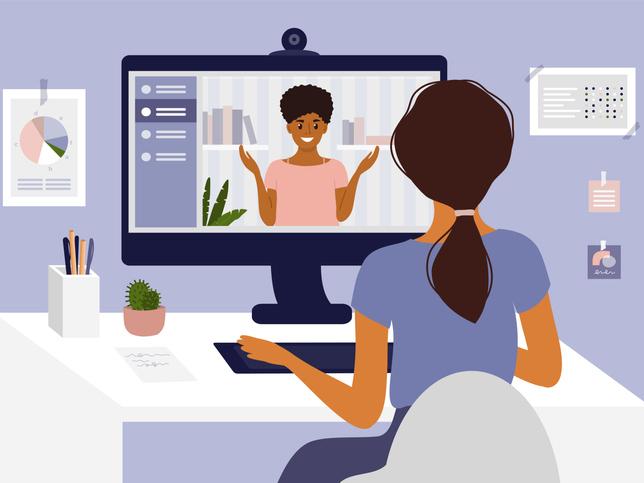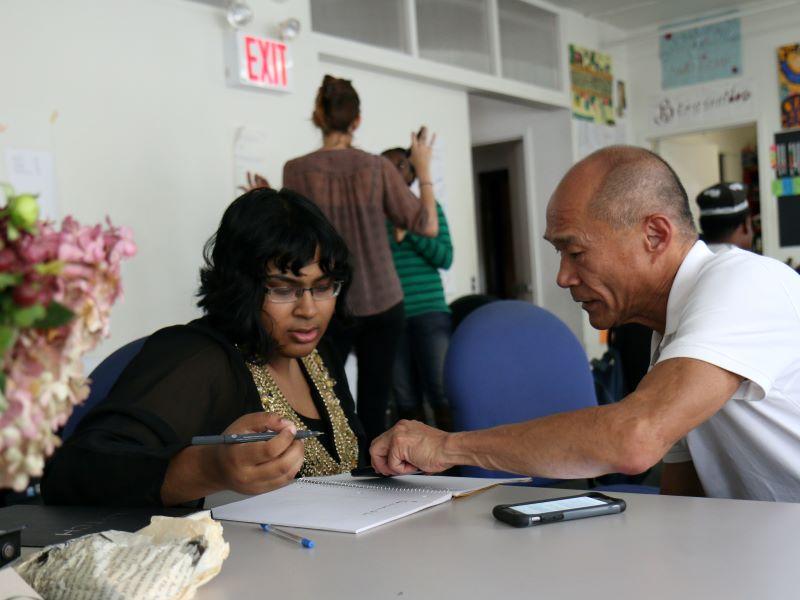
A look back over 10 years of Moocs
You may also like
We began developing massive open online courses (Moocs) 10 years ago. The aim was to experiment with new ways of teaching online, to research what kinds of learning and courses could be achieved, and to have fun. We were never in it for the money.
Although it was undeniably expensive at the start, a decade later, this activity has brought considerable return on that investment in terms of what we have learned, the places we have reached and the impact we have had, inside and outside our institution.
The University of Edinburgh now offers 80 online master’s courses drawn from all disciplines and 100 Moocs and microcredentials, reaching 4.7 million learners around the world.
As assistant principal for online and open learning, I have taken care to ensure that our online course portfolio is closely aligned with the university mission, values, civic responsibility and aspirations for the future. This is what I have learned in 10 years of developing Moocs, which may be helpful for others building their online course portfolios.
Global partners bring global reach
Working with three global learning platforms – Coursera, edX and FutureLearn – provides a unique insight into the business of scaling short courses online and a rich dataset about course materials and learners.
Each platform has its own strengths and weaknesses, and the pedagogical tools offered on each have changed rapidly during the past 10 years. Whoever you decide to work with, it’s essential to understand your portfolio, audiences and strategies.
For example, our course Football: More than a Game is on FutureLearn, which takes it to a predominantly UK audience; but by dual listing it on Coursera, we can reach a massive North American learner base.
- Eyes on the horizon: Resources exploring innovations in providing higher education
- Lifelong learning needs a reboot – here’s how to do it
- Resource collection: Tech solutions for the post-Covid campus
Consider your pricing strategy – some platforms offer learners a monthly subscription; others have fewer barriers to learning for free; and many have established partnerships with employers, which is ideal if your courses are suitable for upskilling staff in particular industries.
The benefits of working with three global platforms is that you can choose at the outset which platform aligns best with each course. Our institutional platform strategy helps target the right content to the right platform, ensuring that we reach the right audience. This clear strategy enables us to adapt quickly when learning the platforms’ business models evolve.
Like any relationship, you must work hard at building and maintaining the partnership. We hold regular meetings with our account managers to ensure that they understand our motivation and drive. We make Moocs to encourage global participation in education, provide a platform for knowledge exchange and flexible lifelong learning options. Be clear and honest with your partner platforms about how you operate, what your priorities are and what you want to achieve so that they can help you meet these objectives.
Each platform has a different approach to quality assurance and provides different learner insights. This enables us to test different approaches and to learn from each platform what they know about creating and delivering courses to massive audiences. We combine this with our own insights and understanding from hundreds of years of creating learning materials. Our academics love to offer courses in different languages, which has kept the platforms on their toes as they must think differently about how to deliver learning to non-English speakers.
Collaboration and knowledge sharing
Making Moocs provides an opportunity to bring disparate elements of a university community together. A typical Mooc team will include academics, learning technologists, media producers, project managers, open educational resource experts and marketers. Our Online Course Production Service is a hub that unites all these people, provides a safe space to experiment with course creation and enables academic teams to learn from others who’ve been through the same process. We support academic teams to help them release significant proportions of our courses as open educational resources. These are teaching and learning materials that have been shared under an open licence, such as a Creative Commons licence, enabling them to be freely reused, repurposed, adapted and redistributed.
Working with many research groups, cultural organisations and charities, from Brain Health Scotland to the National Museums of Scotland, ensures a diverse set of voices in discussions about how and why a university can and should make courses freely available online. Moocs offer a rapid channel for knowledge translation and dissemination, public engagement with research, global reach and a place for discussion and debate with an informed citizenry at times of major geopolitical change. And while many say the markets are hot for data skills and cybersecurity, our consistently most popular course is one in philosophy.
Experimenting means you’re ready to adapt when you have to
The value of experiments in online learning can be seen in the capacity building and upskilling of colleagues. The art of instructional design will spread across the institution through course design workshops. We’ve even made two courses – How to Create an Online Course and How to Create Video for Online Courses, both available on FutureLearn – where we share our expertise. It is worth running networking events where subject matter experts can connect, such as our learning technologists’ community or our online learning marketing forum.
In making and delivering our courses, more than 200 academic colleagues, media producers, learning designers and learning technologists have cut their teeth and honed their skills for online learning. This has boosted our ability to deliver in a crisis and develop resources to help others do so, too.
During the pandemic lockdowns, our online courses and Moocs continued to grow. A rapid response from teams across the university delivered a short free course to 55,000 front-line healthcare workers across the globe on the principles and practice of how to care for critically ill patients during the pandemic.
Summary of tips for delivering short online courses
- Don’t be afraid to try something new. Digital education is an evolving field, and you never know where your experiments might lead
- Get institutional buy-in from the entire organisation – senior management, academic teams and learning technologists – by aligning your courses with your university’s strategic goals
- If you work with more than one partner platform, develop a strategy to ensure that you are using the right platform for the right audience
- Work closely with platform partners to get the most out of your partnership; ensure that you can access any data they provide to evidence the reach and impact of your courses
- Pay attention to the licensing of all your course content. Sharing it appropriately can make it accessible to many more learners globally.
Each of our 21 academic schools and deaneries have either a master’s or a Mooc online, and many have both. Our e-learning students currently report higher levels of satisfaction and belonging than their peers on campus. A huge thanks needs to go to all the academic teams who choose this route to share their knowledge with learners all over the world.
Melissa Highton is assistant principal of online and open learning at the University of Edinburgh.
If you would like advice and insight from academics and university staff delivered direct to your inbox each week, sign up for the Campus newsletter.




